POLL: Which kitchen design trend will become the new norm?
Emily H
5 years ago
Eco-friendly / sustainable design (ex: Energy Star-certified appliances)
Accessible / Wellness design (ex: multi-level countertops for people with different heights / wheelchair accessible)
Pet-friendly design (ex: eating areas incorporated into the cabinets or island)
Smart / connected design (ex: refrigerators that remind you when you are out of something)
Efficient / time-saving design (ex: ultra-fast dishwashers)
Featured Answer
Sort by:Oldest
Comments (178)
RJ Andreoli
5 years agowillozwisp
5 years agoRelated Discussions
GE IDs 6 Appliance Trends
Comments (2)That might be 2014 to GE, but most of the rest of the world that pays attention could easily see it coming 6-7 years ago. All they had to do was to actually talk to the folks on the front lines who interact with appliance customers on a daily basis....See MoreIs the 'farmhouse' kitchen style becoming a craze?
Comments (19)I am also a little disheartened to see this style kitchen everywhere because when I began planning mine there weren't many to be found. Mine is in a lake cottage home and I think it's so well suited to the casual, rural surroundings that it will always look "in place" and "in time" which is what I most wanted. I have to say I was happy to hear that my cabinet supplier discontinued offering the denim blue stain/glaze that my island was done in. That, at least, will be my distinguishing feature! I would encourage you to go with this style if you love it. I don't think it will soon be dated. The only instance I would say not to do it is if it doesn't fit the rest of the house or location i.e. The Barefoot Contessa has this type kitchen in her cottage in the Hamptons, but the one in her NY city apartment (featured in a recent House Beautiful issue)is styled very differently to fit that building and locale....See MoreAre (true) Pre-Washes becoming extinct in NEW washers?
Comments (33)With Little Giant Cottons program prewash taking only 6 minutes at default setting, and no water shortage around here, I have a low bar for using prewash. For example, in the summer I walk around the house and garage, and sometimes even the driveway, in my socks. So they're dirty. I usually don't put detergent in the prewash compartment, so I'm using it as a prerinse. The Little Giant also has a prerinse option on the Cottons programs. It has to be set in the supervisor menu, and all Cottons washes do a prerinse once it's set. I tried it once, and it didn't spin after the prerinse, unlike prewash which does a short spin. Have to also mention the Sluice programs, which do two very deep prerinses. But they have only two temperature choices, very hot and really very hot. Sluice has been discussed here before. Prewash on the Little Giant has one "side effect" that I've found useful. It works around the load sensing problem that occurs when you stuff the drum very full (talking about Cottons programs here, again). The load can't tumble freely and absorb water quickly, so the machine decides in a couple of minutes that it's a small load, and cuts a little time off the wash and first rinse. It still keeps adding water as the load absorbs it, so the load ends up saturated, but you lose those few minutes of washing and first rinse. When I use prewash, the machine still makes the decision to shorten the program time, as seen by a drop in the time-remaining number, a couple of minutes into the prewash. But at the end of the prewash it restores the program to its original time....See MoreWould you post a Reveal on GW if your kitchen were ‘out of trend’?
Comments (107)Can I just say this? After reading all these wonderful posts, perhaps the so-called 'trends'... aren't. Perhaps the real trend is doing what you love, doing what fits your region, you home, your lifestyle and needs, your aesthetics. This seems to me to be the prevailing trend here on GW. I saw a tiny glimpse of a kitchen on GW with a 4" backsplash that I thought divine and totally perfect with the cabinets and fixtures I could see - and felt others would think so, too. It was really quite beautiful, IMO. Merriam Webster definition of Trend: a prevailing tendency or inclination; a current style or preference. Seems, at least here on GW, the prevailing trend is to do what is right for each individual/family, and current styles and preferences are what each of us likes and in the end, chooses, not what is dictated to us. Whether it be trendy with designers/design writers, or not....See MoreUser
5 years agojmm1837
5 years agoUser
5 years agoUser
5 years agolast modified: 5 years agoUser
5 years agoUser
5 years agolast modified: 5 years agoRJ Andreoli
5 years agolast modified: 5 years agojmm1837
5 years agoRJ Andreoli
5 years agoUser
5 years agoToronto Veterinarian
5 years agoUser
5 years agohandmethathammer
5 years agoUser
5 years agolast modified: 5 years agoUser
5 years agojmm1837
5 years agoSaundra Kielborn
5 years agoSaundra Kielborn
5 years agoUser
5 years agolast modified: 5 years agotackykat
5 years agoUser
5 years agoUser
5 years agoUser
5 years agolast modified: 5 years agoUser
5 years agoUser
5 years agolast modified: 5 years agoUser
5 years agolast modified: 5 years agoUser
5 years agolast modified: 5 years agoUser
5 years agoRenov8or
5 years agojmm1837
5 years agoHolly Stockley
5 years agojmm1837
5 years agoUser
5 years agolast modified: 5 years agoUser
5 years agoKathi Steele
5 years agojmm1837
5 years agolast modified: 5 years agoUser
5 years agoUser
5 years agojmm1837
5 years agoHamma
5 years agoUser
5 years agoUser
5 years agojmm1837
5 years agoUser
5 years agolast modified: 5 years agoKathi Steele
5 years agojmm1837
5 years agoUser
5 years agoLargeKitchenAppliances
5 years ago
Related Stories

KITCHEN DESIGNKitchen of the Week: A Designer’s Dream Kitchen Becomes Reality
See what 10 years of professional design planning creates. Hint: smart storage, lots of light and beautiful materials
Full Story
KITCHEN DESIGNA Designer’s Picks for Kitchen Trends Worth Considering
Fewer upper cabs, cozy seating, ‘smart’ appliances and more — are some of these ideas already on your wish list?
Full Story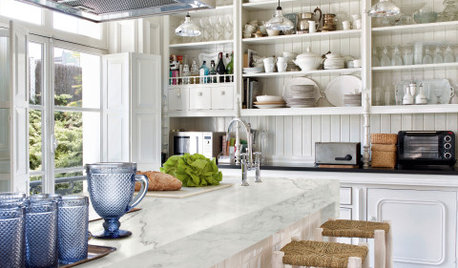
TRENDING NOW10 Kitchen Design Trends From New Products Coming in 2021
See the appliances, fixtures and features that stood out amid a flurry of introductions timed to the KBIS trade show
Full Story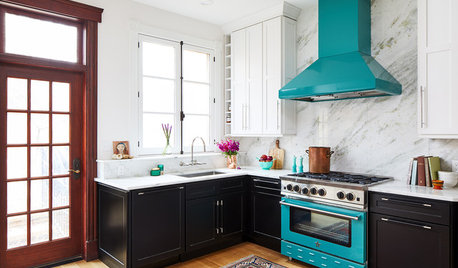
KITCHEN DESIGNDesigner Shares Her Top 10 Kitchen and Bathroom Trends
At San Francisco Design Week, designer Sabrina Alfin spoke about the looks she’s seeing and her clients are asking for
Full Story
KITCHEN DESIGNKitchen of the Week: Industrial Design’s Softer Side
Dark gray cabinets and stainless steel mix with warm oak accents in a bright, family-friendly London kitchen
Full Story
EVENTSEmerging Design Trends From Milan Design City
In a live and virtual design festival held in Milan, brands showed products and design approaches for the current times
Full Story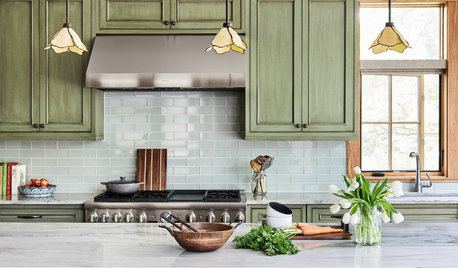
KITCHEN DESIGN11 Must-Haves in a Designer’s Dream Kitchen
Custom cabinets, a slab backsplash, drawer dishwashers — what’s on your wish list?
Full Story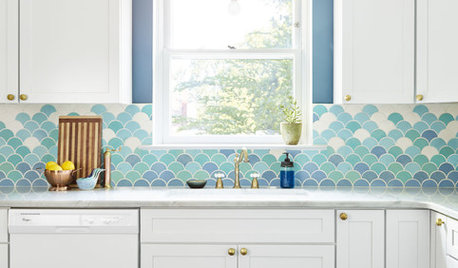
KITCHEN MAKEOVERSA Designer’s New Kitchen Embraces Soothing Sea-Blue Colors
Ocean-inspired fish-scale tile and brass hardware on crisp white cabinets create a tranquil space
Full Story
MOST POPULARTrend Watch: 13 Kitchen Looks Expected to Be Big in 2015
3 designers share their thoughts on what looks, finishes and design elements will be on trend in the year ahead
Full Story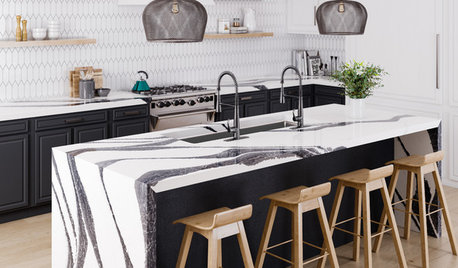
EVENTS5 Color and Style Trends for Kitchens and Baths in 2019
See top looks on display at the Kitchen & Bath Industry Show and the International Builders’ Show
Full Story








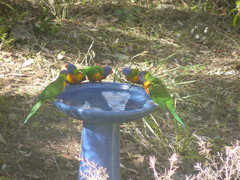
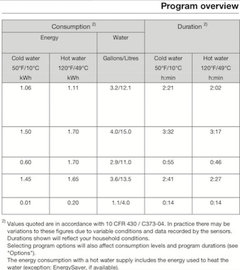




ingrid_vc so. CA zone 9